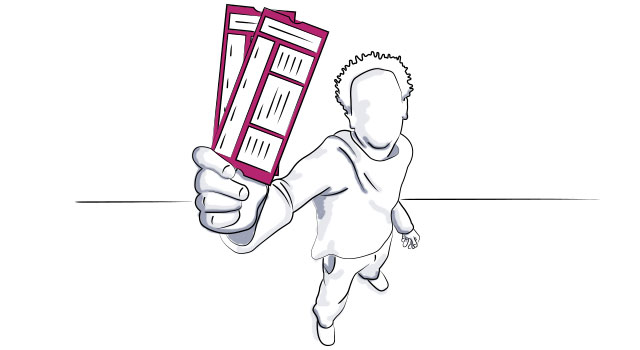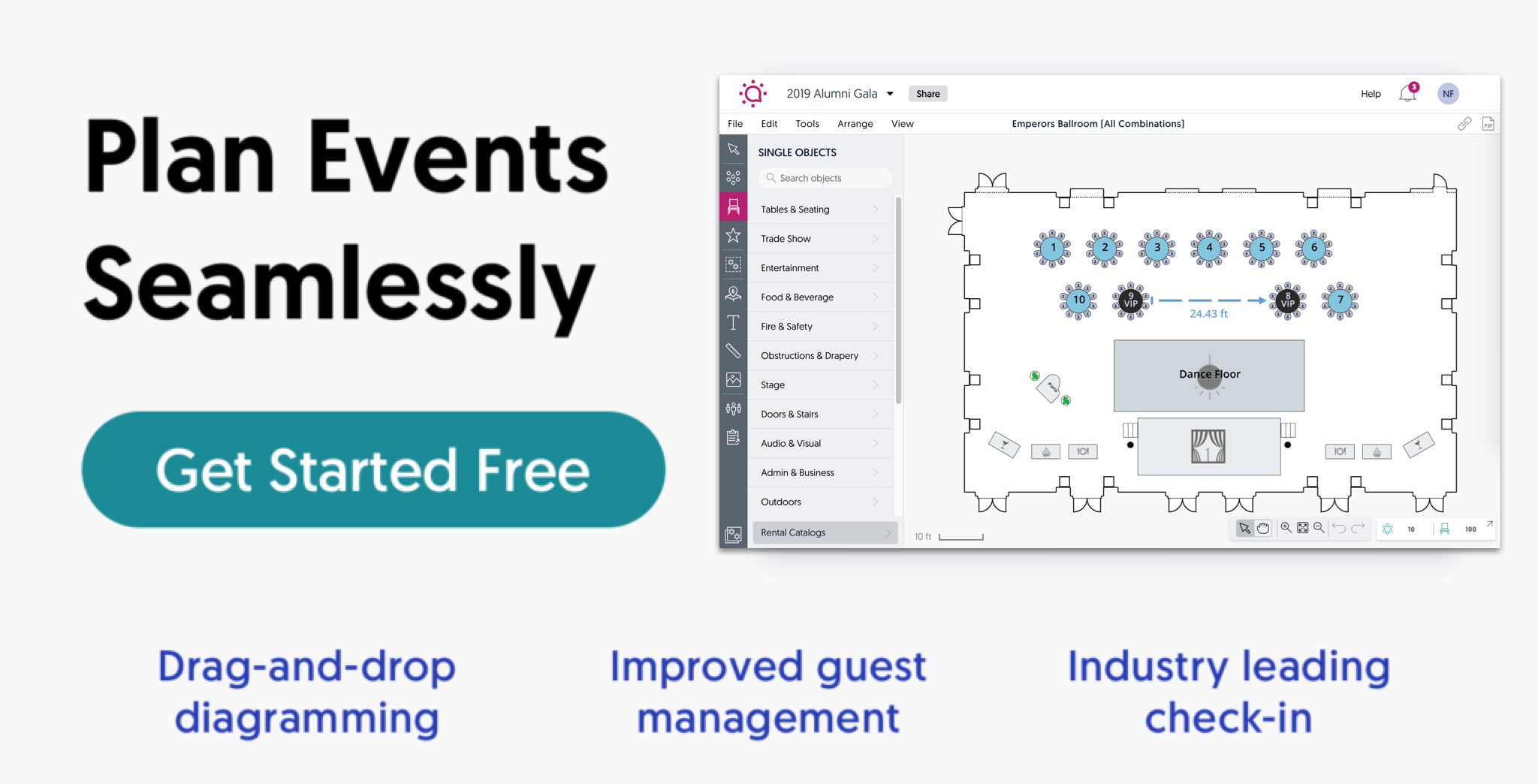
How to Plan a Concert in 10 Steps
As far as events go, those with live music are some of the most engaging and entertaining for attendees. But without the right plan in place, they can also be the most likely to hit some bumps in the road. That’s why we put together this guide on how to plan a concert.
With more elements and moving pieces than a typical event, a concert has a few more things that can go wrong at any given time. Technical malfunctions with audio-visual equipment, illnesses or injuries to musical talent, and inclement weather can all have negative effects on the experiences of everyone involved. To learn how to be best prepared for any mishaps and ensure that your concert is set up for success from the get-go, keep reading!
Learn how to plan a concert in 10 simple steps:
1. Establish goals.
One of the most important steps when discovering how to plan a concert is establishing goals. In other words: What do you want this concert to accomplish? You’ve likely already set your event goals and objectives and decided that a concert is the best format to accomplish them. But without a clear idea of what you’re hoping to achieve with the live music portion of your event, you’re unlikely to end up with a memorable concert.
The best live music events have a concept or theme driving the narrative. This concept shapes everything from the type of music performed to the audience, venue, other event activities, and style of event decor and merchandise.
Consider the attendees for your event and what concept and style will be most appealing and memorable to them. If you can, speak to a few members of your target audience to double-check that the concept you’ve come up with is as exciting and engaging as you want it to be.
2. Create a budget.
It’s tempting to estimate how many attendees you expect at your concert, multiply this by the price you think people will pay for a ticket, and consider the total to be your budget. But that’s backwards.
In order to have enough money for expenses and contingencies, and to make a profit (if that’s one of your goals), you’ll need a clear budget outline before anything else.
Use the rest of this list to determine what you’ll need for your event and create a line item for each category. Include roughly 10-30% of unallocated funds for contingencies and unanticipated expenses. That way, when something comes up, you’ll be ready for it.
3. Find the talent.
The musical talent that you bring in will shape the atmosphere of your concert more than anything else. This may also be one of your main budget line items depending on the type of talent you want to bring in.
Try to find talent that fits well with your event concept and objectives. Make sure that their audience significantly overlaps with your target audience for the event. For instance, the last thing you want is a band with a primarily teenage audience playing to a room full of seniors.
Keep in mind that if you hire out-of-town talent, you’ll likely need to pay for their travel expenses. This could put you over budget unless you’re careful. By choosing local talent, you may be able to save some money as well as create a connection with the local community.
4. Pick a venue.
Many venues are set up for and willing to accommodate live music. If you’re planning on choosing an indoor venue, make sure they have experience with live music and a stage and seating setup that works for the type of music you’ve chosen. Outdoor venues have higher production costs and more unknowns due to weather conditions, but they can be a great choice for concepts like barbeques and picnics. If you do choose an outdoor venue, make sure to have a backup plan for rain, snow, wind, heat, cold, and any other elements that could ruin the concert.
The energy of your concert will be affected by the crowd, and your venue size plays a big role in this. If you book a venue that’s too large and don’t sell it out, you’ll have a half-full room and a low-energy crowd. On the other hand, if you book a small venue and sell it out too quickly, you’ll wonder whether you missed out on more potential ticket sales and revenue. Because the energy of the crowd will be affected, it’s always better to go with a slightly smaller venue that you’re sure you can fill.
You’ll want to lock in your venue early, as the rest of the event details will start to fall into place once you have that major piece of the puzzle decided.
Explore the Cvent Supplier Network to find, request, and book venues all across the world.
5. Apply for permits and insurance.
Depending on your venue choice, you may need to get permits for alcohol, food, music, and the event itself. Check with your venue and with local authorities to see what you need for your situation. It’s also a good idea to get insurance for your event. You’ll be covered for many common mishaps, and your venue may require it.

6. Finalize a date and time.
The optimal date and time for your event will depend on your audience and your event concept. Some themes and concerts work better in a nighttime setting, where you can use lighting and backdrops to set the mood and tone. Other concepts and venues, especially outdoor ones, will be logistically easier to manage in the day.
Keep in mind that your audience has times that will work best for them as well. Take into account things like school, work, and holiday schedules to determine what day and time is best for your concert.
7. Determine what equipment is needed.
Speak with your musical talent and your venue to determine what equipment you’ll need for the performance and whether the venue can provide any of it. This could include a stage, speakers, microphones, sound system, lighting, and other audio/visual equipment. Check with your musical talent to determine what equipment they will be bringing themselves and what you are responsible for.
Think about the acoustics of your space and whether you’ll need any amplification for the musical performance, as well as what types of seating arrangements make the most sense. If your venue is outdoors, make sure that you have a way to protect the equipment from the elements. As you speak with vendors, talent, and the venue to determine your equipment needs, make sure to ask how long they will need for setup and breakdown, and whether they need access to power, a loading dock, or any other special access. These details will be key to add to your plan to avoid costly mistakes.
8. Create a comfortable environment.
Keep your talent comfortable and help them prepare by creating or outfitting a backstage area. This can be any semi-private or private area in your venue, but it should have easy access to the stage as well as restroom facilities.
You can create a comfortable experience backstage by providing water, soft drinks, snacks, and other small necessities for your musical talent. Ask them in advance whether they will need somewhere to change, warm-up, or rest between performance periods.
Your audience’s comfort will depend on access to restroom facilities, refreshments, and appropriate seating. If your venue is outdoors, make sure there’s enough shelter in the case of inclement weather, or have a backup plan for when a storm rolls in.
Don’t forget to make a plan for everyone’s safety, too. You should have adequate security, medical assistance, and event assistants for the size of your audience and for your venue.
9. Start selling tickets.
If you’re planning on making money from the concert, you’ll need to sell tickets. You can partner with a ticketing service to offer print or digital tickets for your event. Some ticketing services offer the ability to use custom branding on the tickets, accept multiple payment methods, and offer tiered pricing. Many will also include a website for your ticketing and integration with your social media accounts.
The time and date of the concert should be clearly marked on the ticket, along with relevant seating information and a clear return/refund policy.
10. Promote the concert.
Just like any other event, the promotion for your concert will directly correlate to its success. You’ll need a marketing plan that takes into account your event concept, audience, and the musical talent that you’ve brought on board. If the talent has certain channels that work well for their marketing, make sure to double down on those channels and partner with the talent to spread the word.
You can increase your reach and spread your message further with the help of event partners. Sponsors, merchandisers, concert promoters, ticket sellers, and the venue can all be helpful in the marketing of your event. Get everyone on the same page about the event concept and goals and make it easy for them to promote the event by providing social media, email, and print assets that they can share.
Make sure to capture high-quality photos and videos leading up to and during the event, too. These will become marketing gold in your event follow-up and could be really useful if you’re considering making the event into a series or repeating it next year.
Now you know how to plan a concert!
Looking for help with the layout of your concert? We’ve got you covered with our top tips for music festival layouts.

